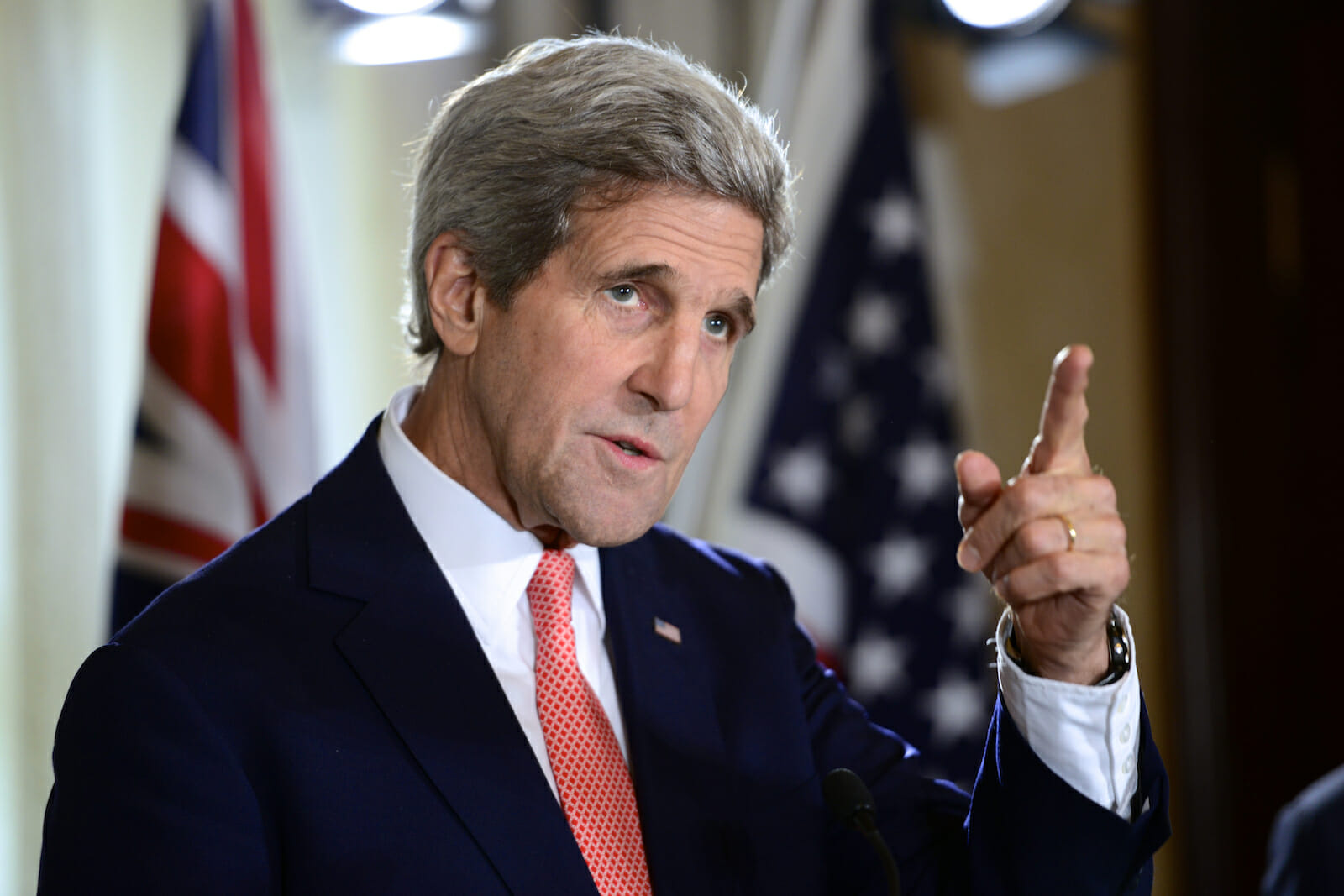
Iran-U.S. Honeymoon Likely to Decrease Tensions in Bahrain
Bahrain has seen a good deal of continued unrest amongst its Shiite Muslim majority since the government crushed the Arab Spring-inspired uprising in 2011. Last week tensions flared up again. The New York Times reported on Friday that tens of thousands marched in Bahrain in the largest anti-government protest in months. These “mostly peaceful” marches – believed to have been approved by the country’s rulers – came in the wake of President Obama’s United Nations address, in which he compared the sectarian strife going on in Bahrain to that in Iraq and Syria. Bahraini protesters felt emboldened by the President’s remarks.
Demonstrations were also called to protest the arrest of ex-MP Khalil Marzooq, a leader in Bahrain’s mainstream opposition group, on charges of inciting terrorism. In nearby Shiite villages, people took to the streets demanding the release of political prisoners. Following the protests, on Sunday, the AFP reports that a Bahraini court sentenced 50 people to up to 15 years in prison for forming the “February 14 Revolution Youth Coalition.” The coalition was accused of being the main motor behind the uprisings that have stunned the country since 2011.
The recent rapprochement between the US and Iran at the United Nation last week would suggest that despite the protests in Bahrain, a period of tense calm has come to drape the region.
If we consider that Iran’s ultimate goal is for the economic sanctions to be eased, then it may be in Iran’s strategic interest to keep this ‘honeymoon’ going on for as long as possible. Iran has considerable influence over the Bahraini Shiite majority and may want to use this influence to quiet things down in Bahrain for a while.
As the years roll on in Bahrain without any real progress being made, the protestors connection to Iran, whether real or invented, is becoming more and more of an issue. Tehran has, in fact, strongly condemned the crackdown by Bahrain’s ruling Al-Khalifa family. Shiite spiritual leaders in Iran have gone even further and openly urged support for Bahraini demonstrators.
The Iranian politician, Ayatollah Ahmad Jannati, stated that “all Islamic intellectuals are now called upon to act. All Islamic countries, as long as they’re not themselves involved in the crime, bear responsibility to support the Bahrainis in their fight.” Shabnam Nourian, a writer for Deutsche Welle, goes on to say that “this kind of support from Iran, for the Shiite-driven protests, has inflamed tensions between Tehran and its Arab Gulf neighbors, most of which are ruled by Sunni royal families.” Saudi Arabia has sent thousands of its troops to Bahrain to back the ruling royal family and help suppress protests.
In a recent interview on Press TV, human rights activist Massoud Shadjareh said “there is a huge pressure from the Saudis because the Saudis do not want any negotiations for any sort of democracy or empowerment no matter how little it is to, sort of, find root within that region and this is why the Saudis have, actually, sent armed forces to crush the civilian uprising, which is totally peaceful, and the international community is absolutely silent, the silence is deafening.”
He goes on to say that “many other observers actually recognize that without Saudi involvement in this whole scenario, the Bahraini government would have come to some sort of accommodation of needs and aspirations of its own people and move forward because really it is not benefitting them whatsoever and it really is just benefitting the third parties outside of Bahrain.”
Given the momentary détente between Iran and the US, however, and its positive consequences on the price of oil, it is not likely Saudi Arabia will do anything for the time being to increase tensions in Bahrain, either.

